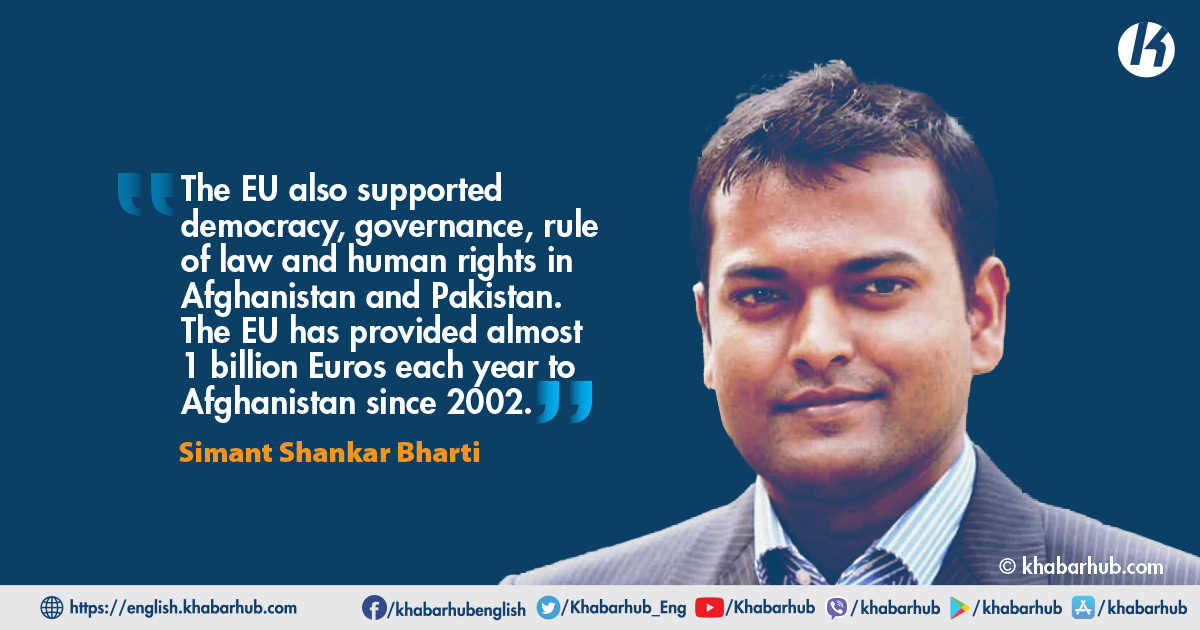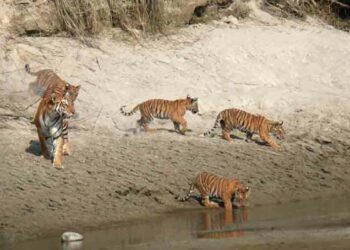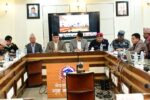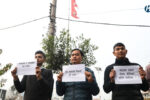The European Union (EU) and South Asia share an age-old relation of history, culture and diplomacy. The first connectivity and partnership between both entities can be traced back to the 1967 Food Aid Convention.
At that time, India and Bangladesh were major beneficiaries of food aid by the European Economic Community (EEC). Initially, the EEC had close ties only with African, Caribbean and Pacific (ACP) states.
However, the Paris European Summit (1992) and Lomé Convention-IV (1975) were realized the moment that they started acknowledging the importance of other regions than ACP.
However, the major study indicated that the accession of Britain into the European Community (1973) was the main reason for the inclusion of Commonwealth Countries for its development cooperation policy.
Then, the EEC started the financial and technical assistance program for the “non-associated developing countries” in 1976 with coverage of 40 countries from Asia and Latin America (ALA). It was later called “developing countries of Asia and Latin America also known as ALA Regulations”.
The South Asian countries were beneficiaries of food aid and rural development. Meanwhile, some countries of South Asia established diplomatic relations with Brussels followed by India, Bangladesh, Pakistan and Sri Lanka.
The Treaty established a common policy on trade, foreign and security with aim of “safeguarding the common values, fundamental interests and independence of the Union”.
The European role can also be seen in Nepal as 10 million Euros was provided for the democracy assistance program between 2002-2006.
Then, the EU adopted the “1994 Towards New Asia Strategy” and it was revised in 2001 as the “Revised Asia Strategy”.
Both the papers covered the objectives to contribute development, consolidation of democracy, rule of law, fundamental freedom and respect of human rights. Both of the development incorporates South Asian region as well in priority which was not the case before.
In 2005, the EU adopted a one-year ‘Multi-country Strategy Paper’ later, which is followed by ‘Regional Strategy Paper (RSP)’ 2007-13 and 2014-20.
All these papers prioritized democracy assistance programs in South Asia. The RSPs are the major document that included all South Asian countries as beneficiaries of the EU’s aid policy only after 2005.
Before the 1990s, the EU clearly had neglected South Asia due to the non-liberal market structure of the countries in the region.
However, that changed after the Cold War market liberalization of most of the countries and the EU also started to perceive the region as the potential partner.
Likewise, the millennium development goals (MDGs) contributed to the significant economic growth of the region and the World Bank data also indicated South Asia as the fastest growing economy in the world.
Recently, due to India’s unprecedented growth, it has managed to become the fifth-largest economy in the world. South Asia consists of eight countries- Afghanistan, Bangladesh, Bhutan, Nepal, India, Pakistan, the Maldives and Sri Lanka; occupying 4% of the landmass and 1/3 population of the world.
As a result of economic development and demographical advantages, the EU now perceives the region as a potential consumer market.
However, after the 9/11 incident, the security dimensions of the world changed forever and the EU’s counter-terrorism became a priority in South Asia.
EU’s major concerns that cover peace and security the geostrategic dimension of the region also shifted after 9/11. These all are the main reason why the EU started to increase its engagement and strengthening cooperation with South Asia.
Similarly, the ‘European Union Democracy Assistance’ mainly focused on a ‘bottom-up’ approach which engages mainly Civil Society Organization (CSOs) and Non-Governmental Organizations (NGOs).
The populist government in European countries not favored in shared sovereignty, supranational authority, comprises between different interests and mutual tolerance.
These initiatives focus on enhancing awareness of democratic models and regionalism in order to strengthen the South Asian Association for Regional Cooperation (SAARC).
The EU acknowledges the democracy crisis in South Asia and fostering it as part of peace strategy. The major funding for democracy promotion in South Asia is provided by the European Instrument for Democracy and Human Rights (EIDHR).
The democracy program is associated with a development aid program that emphasizes development cooperation, aid program, bilateral dialogue, and trade negotiation.
Moreover, the EU’s development assistance program was noticed first time in 2001 when the European Union Election Observation Mission (EU EOM) deployed to observed the general election of Bangladesh.
The EUEOM role in South Asia took place on the following occasions: Bangladesh (2008, 2014, and 2018), Bhutan (2008, 2013 and 2018), Nepal (2008), Pakistan (2002, 2008, 2013, and July 2018), Sri Lanka (2000, 2001, 2004, 2005, 2010, 2015 and 2020), Afghanistan (presidential election 2004, 2009, 2014 and 2019).
The European role can also be seen in Nepal as 10 million Euros was provided for the democracy assistance program between 2002-2006.
On May 28, 2008, the country ended 240 years of monarchy to become the Federal Democratic Republic of Nepal. Now, the EU is engaged with Nepal with its full delegation that started in 2010.
The country’s strategy paper 2007-13 focussed on the facilitation of democracy and launched the “Election Support Programme’ in 2015 to develop the capacity of Nepal’s Election Commission.
The EU launched the “Federalism Support in Nepal” program in 2019 to capacity-building institutions and fiscal decentralization.
The main aim of the program is to strengthen the capacity of local and provincial governments. In the RSP 2014-2020, the EU allocated 74 million Euros provided to strengthening democracy and decentralization in Nepal.
Similarly, the EU support extended to Bhutan and the EUEOM played a key role in Parliamentary and District election, and the Presidential and Provincial Election respectively in October 2018 and April 2019.
Decentralization and federalism will likely be a burden considering the expenditure involved and bureaucratic enlargement it creates in small countries of the region.
The EU also supported democracy, governance, rule of law and human rights in Afghanistan and Pakistan. The EU provided almost 1 billion Euros each year to Afghanistan since 2002.
However, after the Taliban takeover of Afghanistan, assistance related to democracy promotion in the country has become tricky due to the Taliban’s non-democratic values and political beliefs.
The engagement of the EU in Afghanistan also needs some technical revision considering its future relations with the Taliban as well.
On the contrary, the rise of populism in Europe has started raising the questions of the EU’s impactful promising of democracy and human rights promotion in South Asia. Heather Grabbe and Stefan Lehne argued that “the EU as an organization could suffer great damage from the populist wave”.
The populist government in European countries not favored in shared sovereignty, supranational authority, comprises between different interests and mutual tolerance.
At end of the debate, the EU needs to conduct a need assessment in South Asia. The political geography and environment in South Asia are totally different from European nations.
The European style of decentralization and federalism approaches are not suitable in Bhutan and Nepal because these two countries are very small.
Decentralization and federalism will likely be a burden considering the expenditure involved and bureaucratic enlargement it creates in small countries of the region.
Rather, Bhutan and Nepal need a unitary style of decentralization that is cost-effective and swift in services. The EU also needs to engage in South Asia at government level support related to a mobility-based training program for administrations as well.
(Simant Shankar Bharti is a Doctoral Candidate in Social Science at the Faculty of Political Science and International Studies, University of Warsaw, Warsaw Poland)









Comment